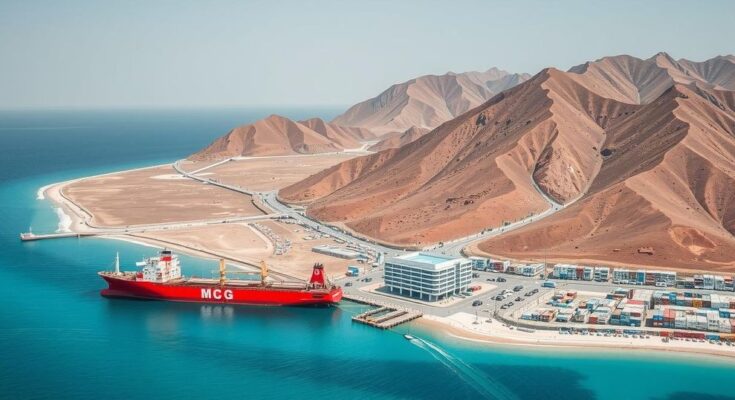Chinese investments in Djibouti have flourished due to its strategic location and resources. The region supports significant infrastructure projects but faces challenges such as limited manufacturing and high import dependency. The acquisition of a salt company in 2015 highlights efforts to optimize local resources. However, the Red Sea crisis may pose risks to these developments as tensions arise.
Djibouti has emerged as a significant hub for Chinese investments in East Africa, driven by its strategic location within the Belt and Road Initiative. Chinese firms have capitalized on opportunities in various sectors, notably in the construction of ports, railways, and mineral extraction. The region also houses China’s sole overseas military base, underscoring the geopolitical importance of Djibouti. However, persistent challenges such as limited manufacturing and agricultural output hinder the nation’s economic expansion. With 90% of Djibouti consisting of arid land, its agricultural contribution remains minimal, leading to high levels of dependence on imports for essential goods.
Furthermore, Djibouti’s underutilized natural resources, particularly Lake Assal—which contains the world’s largest salt reserve—present untapped potential for economic development. In 2015, the China Communications Construction Company recognized this opportunity when it acquired majority ownership of a former American salt enterprise, subsequently restructuring it into the Djibouti Salt Investment Company. This endeavor aims to stimulate local economic growth by efficiently harnessing the lake’s resources, although concerns remain regarding the broader effects of ongoing geopolitical tensions within the Red Sea region.
The geopolitical landscape in the Horn of Africa, particularly around Djibouti, plays a pivotal role in influencing Chinese investments. As part of its Belt and Road Initiative, China has prioritized Djibouti, seeing the country as a strategic link for trade and military operations. Djibouti’s unique geographic location enables it to function as a crucial transit point for maritime logistics. Nevertheless, the nation’s economic productivity faces considerable limitations due to environmental challenges and infrastructural dependencies, prompting a keen interest in maximizing local natural resources like those found in Lake Assal.
In conclusion, while Djibouti presents substantial opportunities for Chinese businesses under the Belt and Road Initiative, the looming crisis in the Red Sea region could complicate future investments. The reliance on imports and limited local manufacturing capacity remain significant challenges. However, efforts like the establishment of the Djibouti Salt Investment Company highlight potential pathways for economic development that may assist in mitigating some of these risks. Evaluating these dynamics will be essential for understanding the future stability of investments in Djibouti amid geopolitical uncertainties.
Original Source: amp.scmp.com




